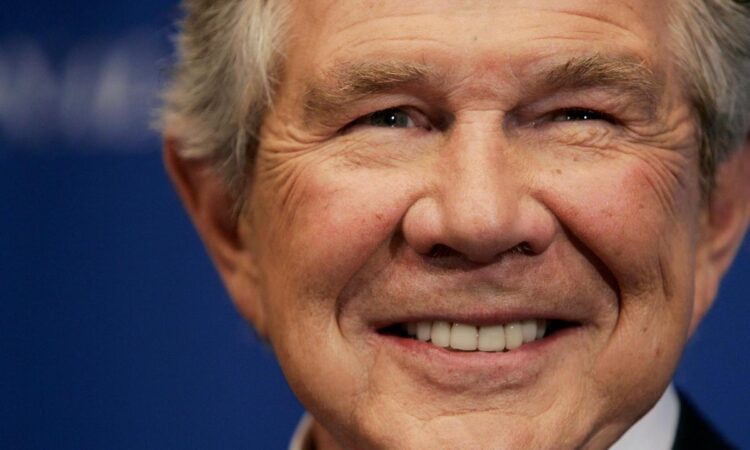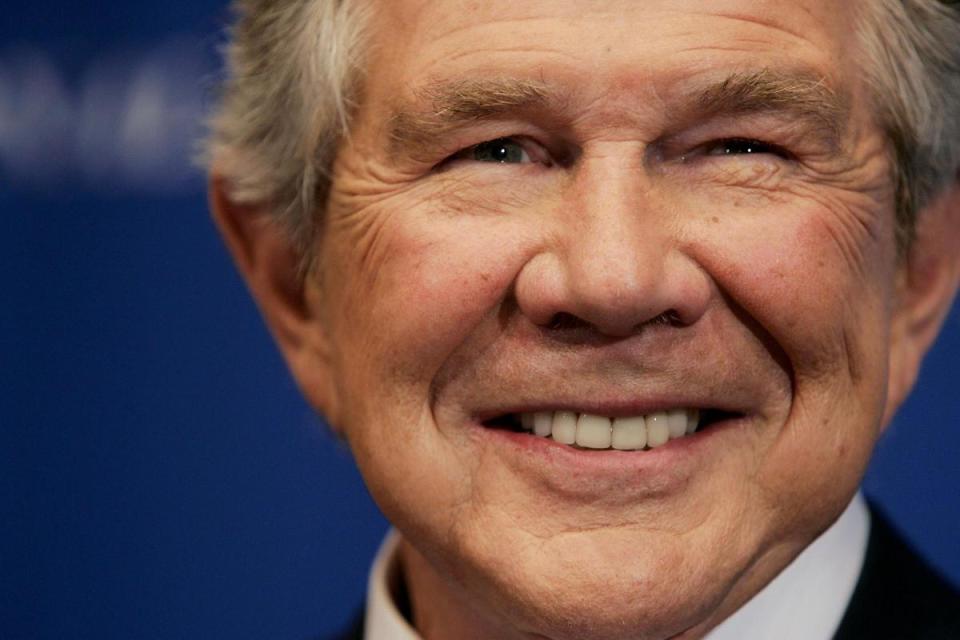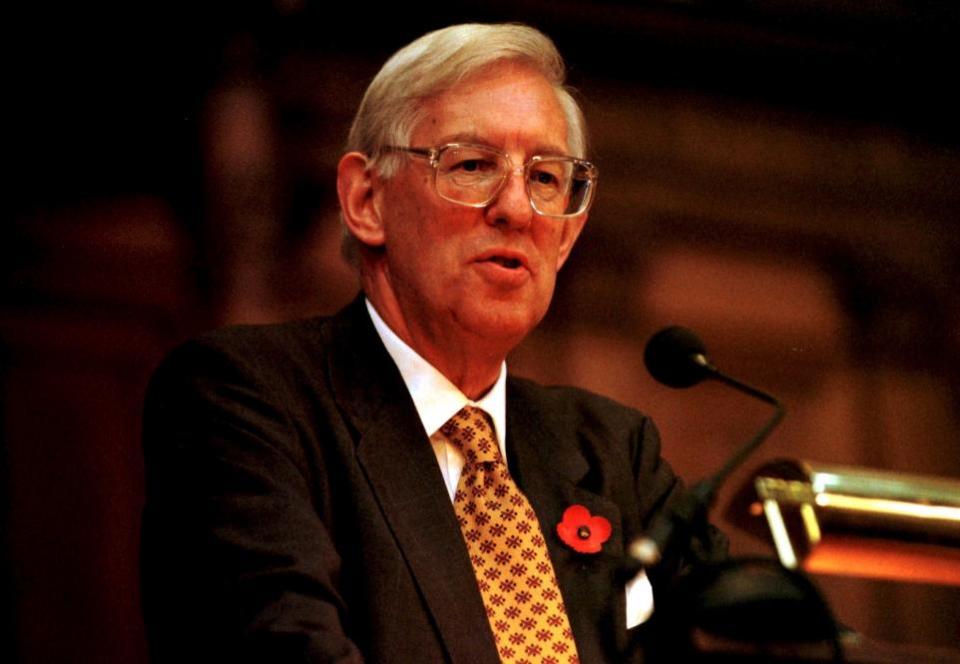

THE controversial American television evangelist, Pat Robertson, who has died aged 93, made a serious run at the US presidency in 1988, trying and failing to secure the Republican nomination that ultimately went to George H.W.Bush.
In Scotland, however, Robertson is remembered for remarks he made in May 1999, about the country being a ”dark land”, overrun by homosexual people.
The fall-out was considerable. Within days, the Bank of Scotland said it was reviewing its position on a proposed deal, first announced in March, to set up a direct bank scheme through Robertson’s religious TV channel.
The bank had until then shrugged off protests from councils, MPs, and churches over the deal, which was worth a reported £30m, and insisted that it would go ahead.
Widespread concern had been expressed over the bank’s proposed link-up with a preacher who had variously attacked gay people, feminists, Democrats, Muslims and Hindus. The bank lost between 400 and 500 customer accounts since the deal was first announced.
But after executives viewed one of Robertson’s broadcasts from his 700 Club programme, the bank called for a meeting with him. Its PR director said: ”The bank is considering its position and a statement will be made in due course.”
Peter Burt, Bank of Scotland’s chief executive, flew to the States to talk to Robertson in person.
Bank’s US deal hangs in balance
The evangelist had referred specifically to gay people in Scotland in his programme, first broadcast that May, describing the country as a “dark land”.
Judgment day for Bank of Scotland’s US foray: The Mound prepares to sever ties with Robertson
He went on: “‘In Europe, the big word is tolerance. Homosexuals are riding high in the media…and in Scotland, you can’t believe how strong the homosexuals are. It’s just simply unbelievable… it [Scotland] could go right back to the darkness very easily.”
The bank took the decision to abandon the link-up, and issued an apology to customers.
In an attempt to draw a line under the controversy, it said it ”regrets any concern – to customers, potential customers, proprietors and staff – caused by the events of the past few weeks”.
The statement, from the deputy governor, Sir Jack (John) Shaw, added: ”As has been recognised from the outset, the concept of establishing a telephone banking operation in North America has considerable potential and we intend to pursue the strategy through other relationships.

Sir John Shaw, photographed in 1999 (Image: Graham Hamilton)
”We have a long-standing commitment to ethical values, tolerance, equal opportunity and non-discrimination in all our dealings. Determination to uphold these principles as we develop out business world-wide will continue to characterise the Bank of Scotland.”
Bank is quiet on costs of buyout
It was reported to have cost the bank between £2 million and £10 million to free itself from its ties to the preacher’s company, Robertson Financial Services.
The UK fashion chain, Laura Ashley, then announced that Robertson had resigned from its board, a mere four months after his appointment. His decision was understood to have come amidst fears of a backlash similar to that suffered by the bank being unleashed on the High Street chain.
TV evangelist resigns from Laura Ashley
The Robertson issue flared up at the Bank of Scotland’s annual meeting in June 2001, at which the board spoke about the benefits of its proposed £28bn merger with the larger Halifax to form HBOS plc.
Some irate shareholders signalled to the board, however, that they believed the bank’s attempted link-up with Robertson had helped bring about its loss of independence.
But Sir Jack told shareholders that he “refuted entirely” any suggestion that the bank was being sold to the Halifax.





